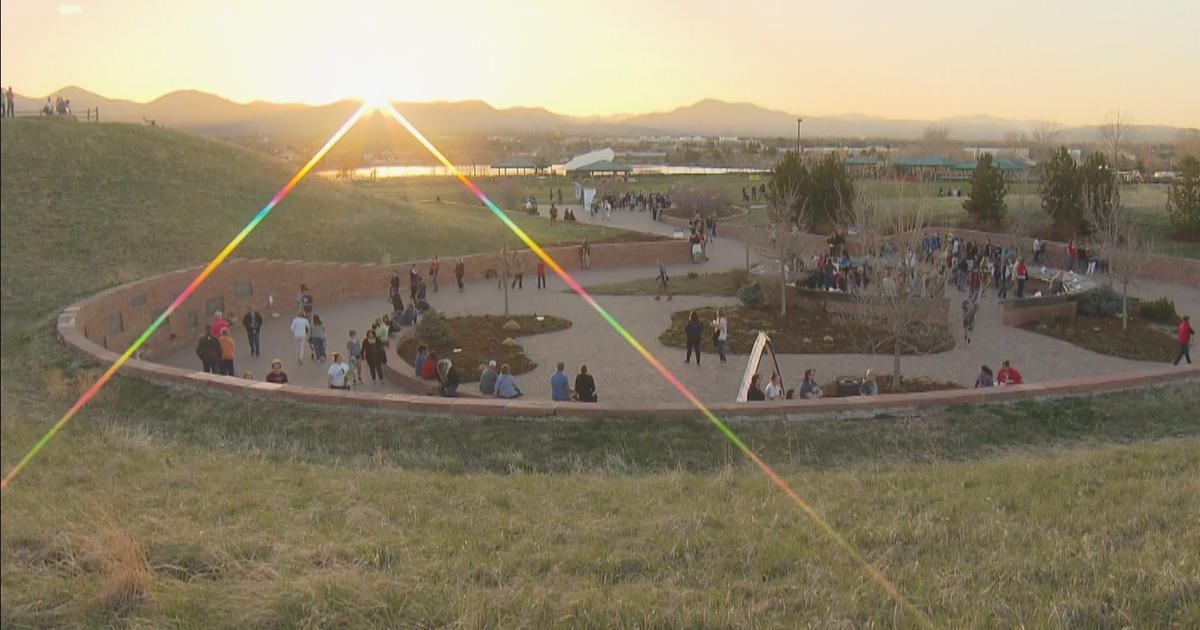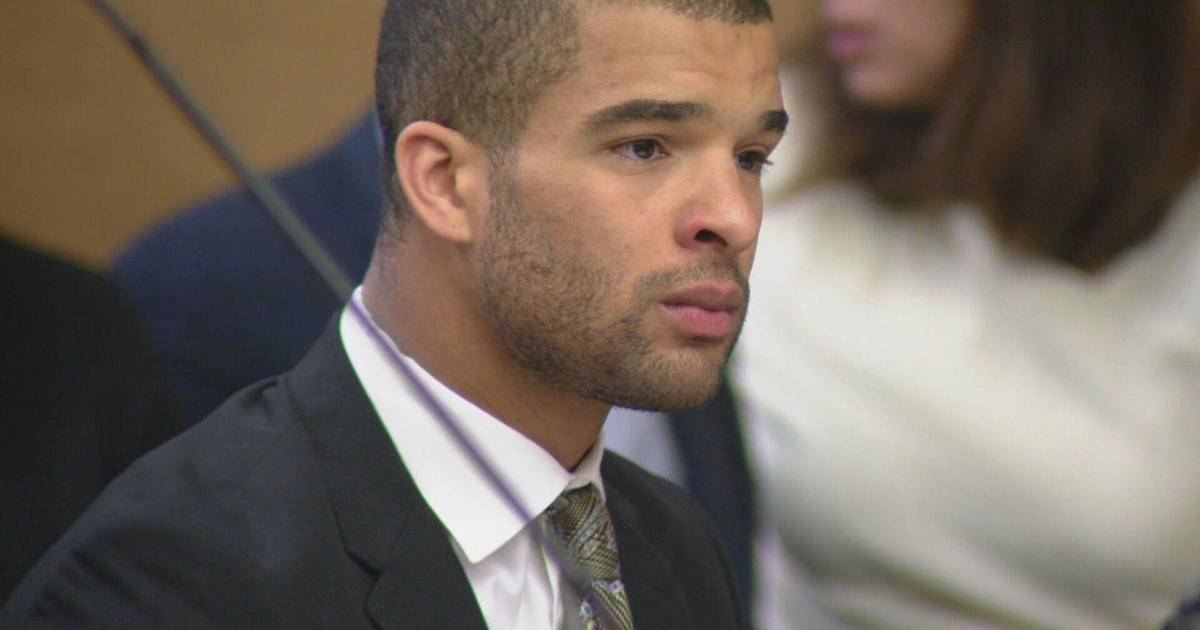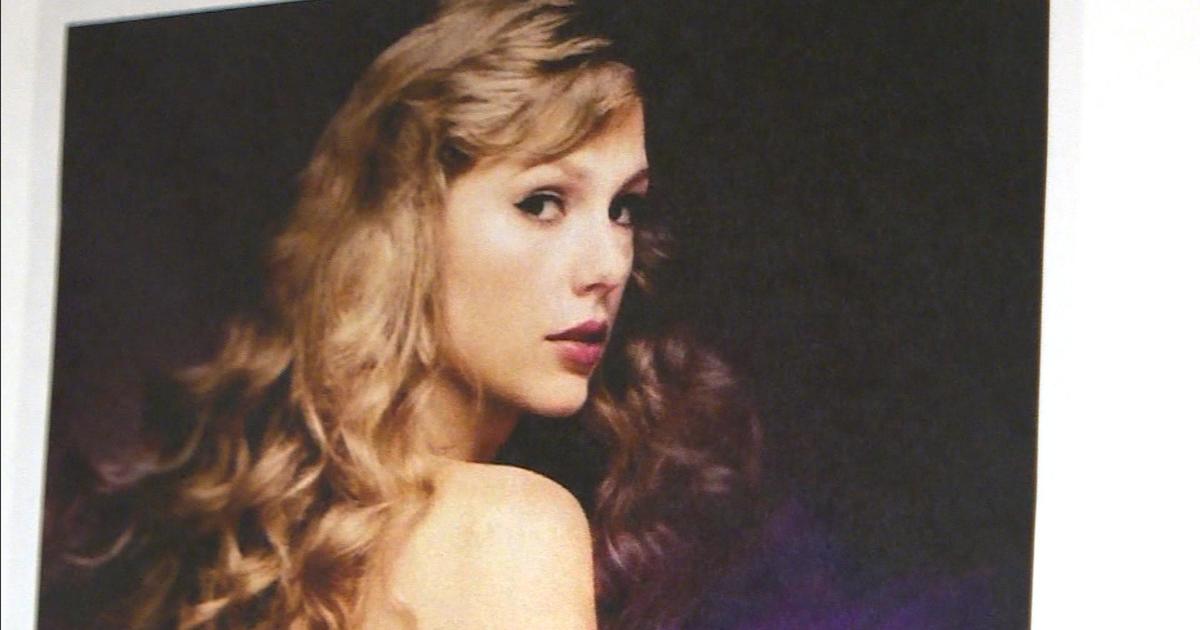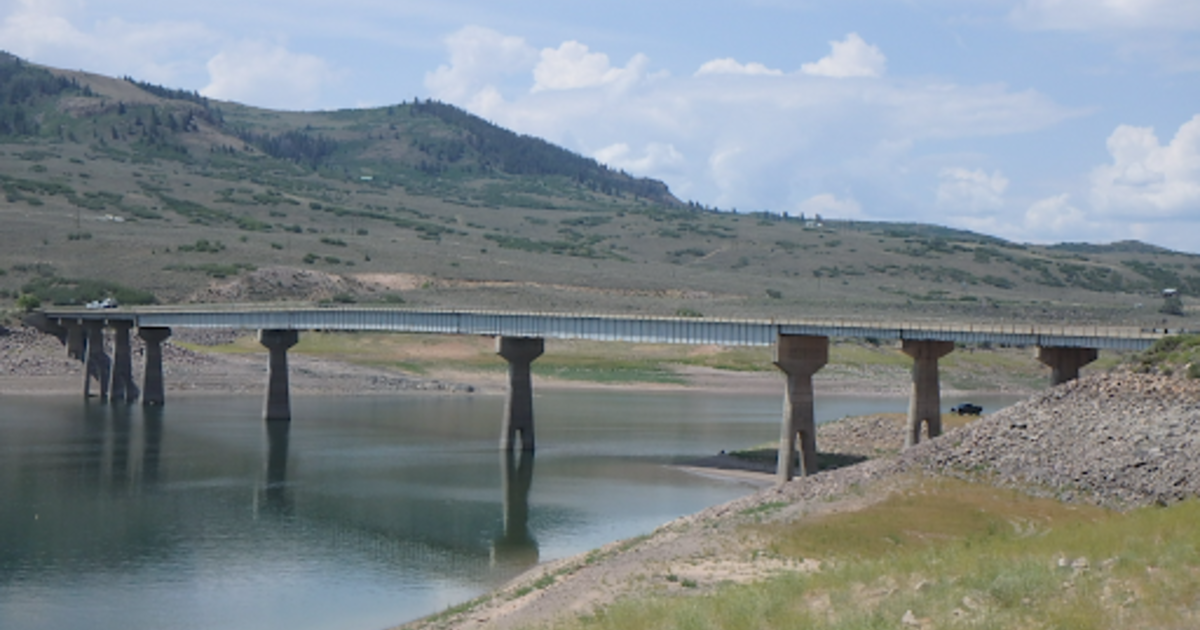Donor Of Vast Ranch To UW, CSU, Expresses Regret
HORSE CREEK, Wyo. (AP) - A woman who donated her family's ranch to promote hands-on agriculture education at the University of Wyoming and Colorado State University says she's disappointed that the two schools haven't made better use of her gift as a teaching tool.
Now the universities are preparing to sell the Y Cross Ranch and Amy Davis says if she had it to do all over again, she wouldn't have donated the vast property between Cheyenne and Laramie in southeast Wyoming.
"I don't think they've taken advantage in the last 14 years of what this ranch opportunity should have given to the students," Davis told The Associated Press in an interview.
Rising up from grassy plains into the woods and meadows of the Laramie Mountains, the Y Cross is bigger than the country of Lichtenstein -- about 50,000 acres, or 78 square miles.
Colorado State and the University of Wyoming have been contemplating selling the ranch between Cheyenne and Laramie for a year or more. Their option to sell under the terms of the 1997 gift agreement between the universities and Davis' Courtenay C. Davis Foundation opened up in September.
What happens next will no doubt be of keen interest to Colorado and Wyoming ranchers who follow big ranch sales and worry about educating future generations for their industry, which sorely needs young blood.
Davis also expressed worry that the University of Wyoming Foundation and Colorado State University Research Foundation might be about to rush through the sale without advertising the ranch on the real estate market long enough to attract the highest possible bidders.
Not so, said Kathleen Henry, president and chief executive officer of the foundation at Colorado State. She promised that the sale process would be structured so that the two schools are able to scout for as many potential buyers as possible.
"We will have a very deliberate, open process and we are going to cast the net as broadly as possible and take the time that it takes to cast that net," she said.
The schools plan to begin marketing the ranch this spring. A sealed-bid sale could occur as soon as this fall but could be postponed another year if the property doesn't generate sufficient interest this summer, said Ben Blalock, president of the University of Wyoming Foundation.
"We're under no sort of time pressure here at all," Blalock said. "The commitment we have to those schools is we are going to bring the best value."
As for whether the schools have fully utilized the Y Cross as an educational tool, Henry said Colorado State uses other properties for hands-on agricultural education that are much closer to Fort Collins, Colo., than the Y Cross.
Blalock said the Y Cross has hosted one or two interns each summer, though not every summer, from the University of Wyoming. The ranch also has hosted students in an agriculture class and provided a site for research into rangeland weeds and cattle weight gain, said Francis Galey, dean of the College of Agriculture at the University of Wyoming.
Galey acknowledged that the Y Cross hasn't received a lot of use for teaching. He called it a wonderful asset but said the emphasis on keeping it a working ranch has made it a difficult location to host students and hold classes.
"It's a very, very efficient and lean working operation. So the way it was set up staffing-wise, there just wasn't a way to accommodate the teaching we wanted to do," Galey said.
An endowment set up from the proceeds of the ranch sale could do a lot more good for agriculture education by funding scholarships at the two schools than what the Y Cross has been able to support to date, he said.
The property evidently has the interest of at least one neighboring landowner, Doug Samuelson, a former Wyoming state legislator whose close relatives are major donors to the University of Wyoming. Last year the university explored a possible land swap involving the Y Cross and some land east of Laramie owned by Samuelson's Warren Livestock LLC.
The University of Wyoming Foundation gave up on the swap idea in September, saying it wouldn't have been compatible with the gift agreement.
The University of Wyoming received an unsolicited bid for the Y Cross in February, 2010. Blalock said he didn't remember who it came from or what the amount was, but the schools weren't interested in selling except through an open process.
"It's almost like somebody just contacting you and saying, `Hey, I'll buy your house.' And that's all fine and well but you're not necessarily looking to sell your house and haven't even appraised your house," he said.
He said an appraiser has been assessing the value of the Y Cross but has not yet determined the value of the mineral rights underlying the property.
A Nature Conservancy conservation easement -- the organization's largest in Wyoming -- was established on the ranch around the time of the gift and generally prohibits new development on the ranch beyond its existing structures and roads. The easement also prohibits splitting up the ranch, according to the conservancy.
"Whether or not the universities own the land, it's going to be protected by the easement and we'll work with the owners, whoever they are," said Andrea Erickson-Quiroz, Wyoming director for The Nature Conservancy.
Davis' foundation, now the Courtenay C. and Lucy Patten Davis Foundation, has been generous with other Wyoming causes including giving $8 million to build a hospice in Cheyenne that opened in 2006. Courtenay C. Davis was Davis' father, a Chicago attorney who moved out West and pieced together the Y Cross through land acquisitions that began in the 1940s. He died in 1995.
Davis spent part of her young life on the Y Cross and now lives in Denver.
The estimated value of the Y Cross at the time of the gift, according to Davis, was $8.4 million. She estimates its value at between $20 million and $30 million now.
The gift agreement allowed either university to buy out the other for half of the 1997 value. In 2009, Davis offered to help Colorado State buy out the University of Wyoming but the University of Wyoming was unwilling to sell, according to Henry at Colorado State.
The gift agreement specified that the ranch was to be used to "provide a `real world' working laboratory" for students to learn about Western ranching and resource management. The ranch also is supposed to generate income for internships and scholarships. It has provided a total of $12,750 for perhaps a dozen scholarships over the years, according to Blalock.
A physician and Cheyenne-area rancher who has lectured in agriculture classes at the University of Wyoming, Taylor Haynes, said the Y Cross ought to be an excellent location for a variety of teaching and research.
Haynes said he is not privy to the finances of the Y Cross but has been surprised the universities are moving toward selling.
"Basically it's a great teaching tool and it's just too bad it would be gone," Haynes said.
Two-thirds of agriculture students these days don't come from agriculture backgrounds and the University of Wyoming has nothing else like the Y Cross for hands-on ranching education, he said.
Davis, too, said the University of Wyoming and Colorado State shouldn't expect to just teach ranching by the book -- the business is too complicated for that.
"They've neglected a great opportunity," she said.
- By Mead Gruver, Associated Press
(© Copyright 2012 The Associated Press. All Rights Reserved. This material may not be published, broadcast, rewritten or redistributed.)



